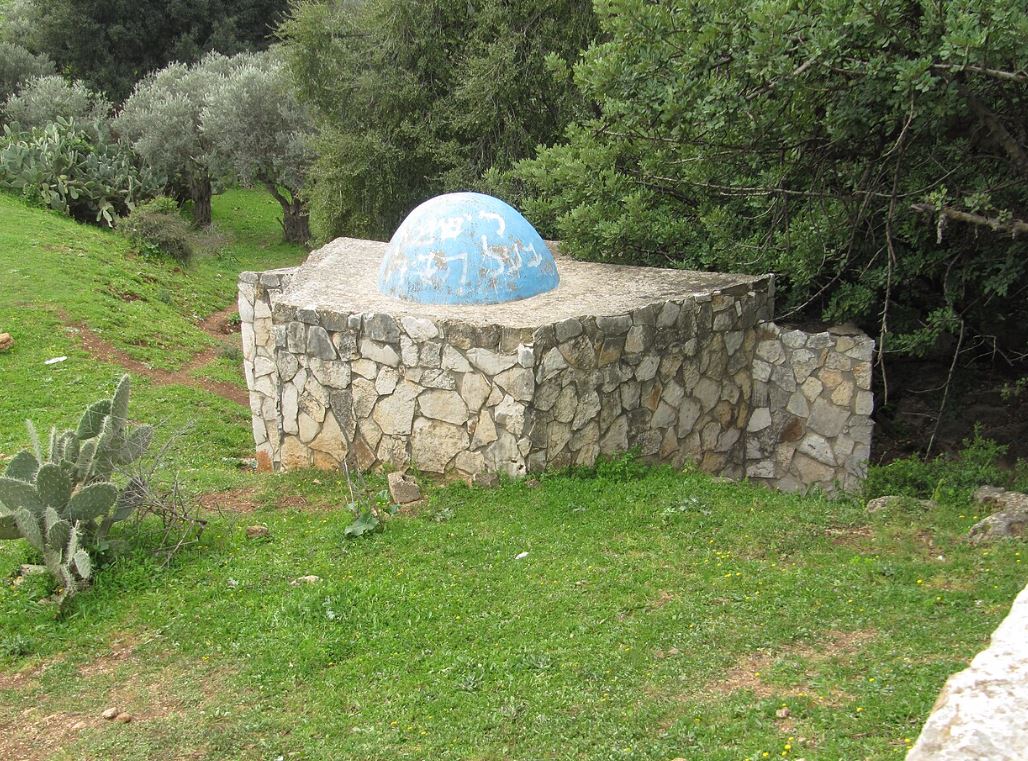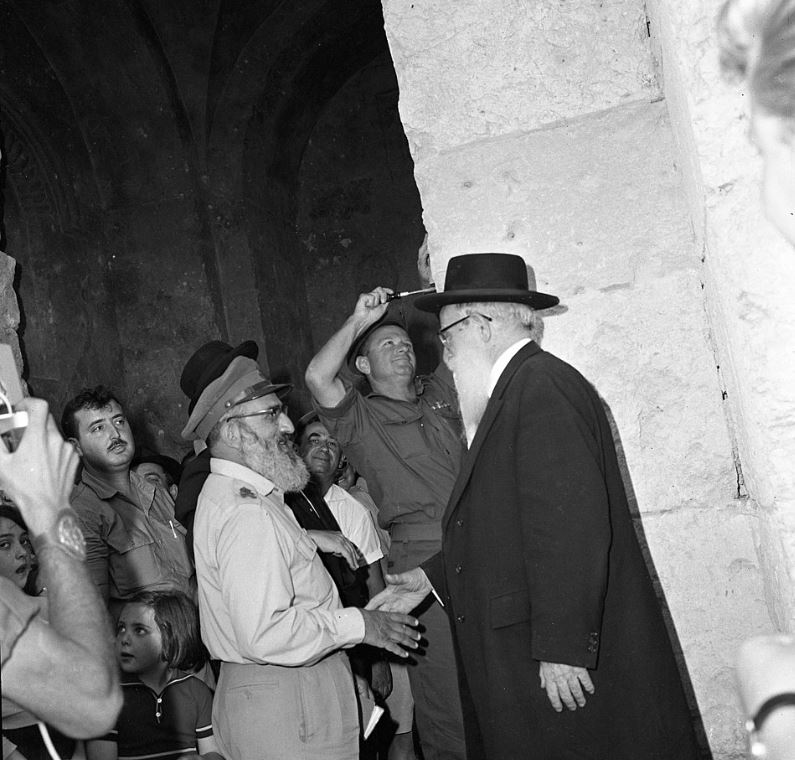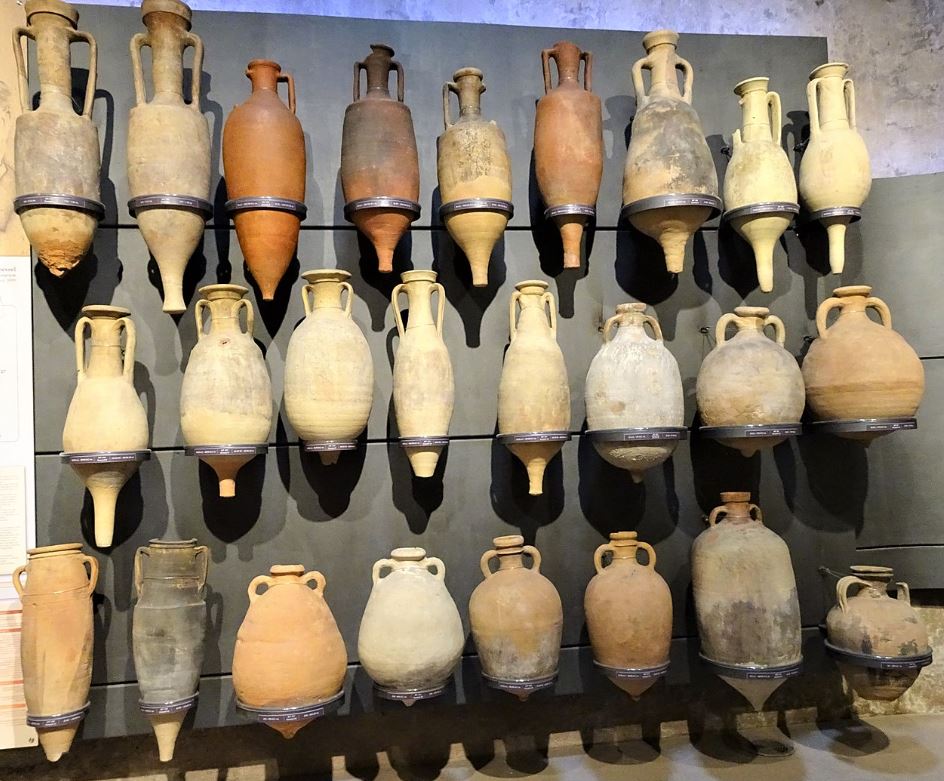Workers of the world, unite! Is this the slogan of the ninth chapter of Bava Metzia? Two Biblical principles are explicated in the second part of chapter nine: the law that a worker’s wages must be paid on time and the rules about keeping the collateral given to you for a loan. These laws are mentioned a few times in the Torah. Regarding wages, one source instructs us:
“You must pay out the wages due on the same day, before the sun sets, for the worker is needy and urgently depends on it;” (Devarim 24:15)
The idea that the employer must pay his laborer by nightfall gives us a sense of the depth of food insecurity most people lived with in those days. Without his daily salary, the average person had no money to buy food to eat that night.
The second law is how one should treat collateral given for a loan:
“If you take your neighbor’s garment in pledge, you must return it before the sun sets; it is his only available clothing—it is what covers his skin. In what else shall he sleep? Therefore, if that person cries out to Me, I will pay heed, for I am compassionate.” (Shmot 22:25-26)
The Ramban in Devarim explains that the principle for the two laws is the same. Just as without his wages the worker can’t eat, without his cloak he can’t cover himself and sleep, since he has no other garments.
In a world where workers were more often than not slaves, and even paid laborers had few rights, Jewish law requires moral responsibility towards others (albeit somewhat less for non-Jews) and see all Jews as “sons of kings”
“As Abaye said: Rabban Shimon ben Gamliel and Rabbi Shimon and Rabbi Yishmael and Rabbi Akiva all hold that all Israel are the children of kings.” (Bava Metzia 113b)
The prophets built on the Torah’s moral foundation and exhorted people to worry less about their bottom line and more about the good of others. A striking example of this approach are the words of the prophet Amos who railed against the wealthy in the Kingdom of Israel who were always scheming to cheat others:
“Listen to this, you who devour the needy, annihilating the poor of the land, saying, ‘If only the new moon were over, so that we could sell grain; the Sabbath, so that we could offer wheat for sale, using an ephah that is too small, and a shekel that is too big, tilting a dishonest scale’ ” (Amos 8:4-5)
Kings were meant to be the exemplars of the idea of protecting the poor and the disenfranchised. That is why God is filled with more anger over King Ahab’s expropriation of Nabot’s land than over his idolatry:
“Say to him, ‘Thus said God: Would you murder and take possession? Thus said God: In the very place where the dogs lapped up Nabot’s blood, the dogs will lap up your blood too.’” (Kings 1 21:19)
Can we find any evidence in archaeology of the struggle to uphold these powerful ideals? Perhaps the most famous example is an ostraca, a piece of pottery “scrap paper,” found in 1960 at an archaeological site on the southern coast of Israel. A large fortress was excavated there that is dated to the seventh century BCE. It was probably built by Josiah, the last righteous king of Judah. In this fortress, dubbed Metzad Hashavyahu, were a number of ostraca with writing in the ancient Hebrew script. The one that stands out is a petition from a worker to someone, maybe the local ruler of the fortress, which is a mixture of our two laws about wages and collateral. He writes an impassioned plea to have his cloak returned as it was taken unjustly:
“Let my lord, the governor, hear the word of his servant! Your servant is a reaper. . . When your servant had finished the harvest, and was storing (the grain) during these days, Hoshavyahu came, the son of Shobi, and he seized the garment of your servant, when I had finished my harvest. It (is already now some) days (since) he took the garment of your servant. And all my companions can bear witness for me – they who reaped with me in the heat of the harvest – yes, my companions can bear witness for me. Amen! I am innocent from guilt. And he stole my garment! It is for the governor to give back the garment of his servant. . ..” (Wikipedia quoting the translation of Klaas Smelik, Writings from Ancient Israel, Westminster/John Knox Press, 1991, page 96.)
Did the overseer seize the cloak as a punishment? As collateral for the worker to finish his allotment of reaping? We don’t know. But in his letter we hear a strong articulate voice of a worker who knows what he is owed. It gives us a sense that the laws of the Torah were not dusty artifacts but living, if sometimes willfully ignored, rules.
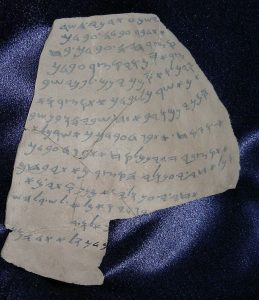
A replica of the ostraca
GU-theolog, Public domain, via Wikimedia Commons
What about the rich people? Unlike the poor, they had more to leave behind for archaeologists to find. If we return to the prophet Amos, his indictment of the wealthy of Samaria includes a description of their fabulous banquets where they sit on ivory couches:
“They lie on ivory beds, lolling on their couches,
Feasting on lambs from the flock and on calves from the stalls.” (Amos 6:4)
About one hundred years ago, in excavations in the ancient city of Samaria, beautiful and intricate ivory decorations were discovered in what was probably the royal palace of Omri and his son Ahab. They have been dated to the ninth-eighth centuries BCE, a century earlier than the time of Amos. This is the second largest collection of ivories in the Ancient Near East and it confirms that the luxuries that Amos saw as proof of extortion and inequity were real and not the product of his imagination.

Ivory figurines from Samaria
Israel Museum, CC0, via Wikimedia Commons
The powerful rhetoric of social justice in Tanakh and in the words of the rabbis continued through the ages and eventually was channeled into the modern labor movement, among whose founders were many Jews. In 1903 a young Jewish woman named Clara Lemlich escaped with her family from the Kishinev pogrom and came to New York. Like many Jews at the time, she found work in the sweatshops of the garment industry. At a meeting in 1909 to protest the terrible conditions in the factories, Clara grew tired of the inflated rhetoric. She climbed up on the stage and in Yiddish addressed the largely Jewish crowd:
“I have listened to all the speakers, and I have no further patience for talk. I am a working girl, one of those striking against intolerable conditions. I am tired of listening to speakers who talk in generalities. What we are here for is to decide whether or not to strike. I make a motion that we go out in a general strike.”
She then asked the assembled workers to raise their right hands and swear an oath based on Psalms 137: “If I forget you, o union, let me right hand wither.” The next day twenty thousand garment workers began a strike that lasted for eleven weeks. At the end, the workers won the right to a fixed fifty-two hour work week, paid holidays and negotiated wages. Not a bad legacy for an ancient law.
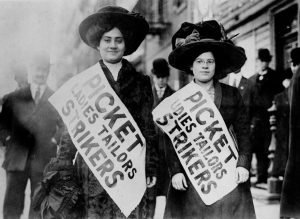
The U.S. National Archives, No restrictions, via Wikimedia Commons




